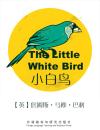《不可容忍的巴辛顿》的情节看似发展缓慢,但结尾却充满了意外,让人始料未及,也让这部小说超越了一般的社会讽刺小说。萨基早期的作品,小说味道全在文字里,不靠情节取胜,因此这部分作品如果能阅读原文,更能品到妙处。他以其丰富的阅历和卓越的艺术才华,生动地再现了十九世纪末二十世纪初五光十色的欧洲社会生活。
《不可容忍的巴辛顿》是萨基的第一部长篇小说,在萨基所有的作品中,《不可容忍的巴辛顿》显得很特别,因为所有的场景都在伦敦。它着重描写了宴会、派对等伦敦上流社会的场景。主要内容是英国上流社会一对姓巴辛顿的母子之间的故事。母亲贪慕虚荣,一心希望儿子能够娶个有钱的女孩,过上衣食无忧的生活,自己也能保住房产和心爱的珍宝。儿子愤世嫉俗、极为叛逆,但也希望能够追到自己看中的富家女。母子二人始终追求着内心渴望的东西,但彼此间的感情日益淡薄,最终筑立起一座心灵间的“冰墙”。
A biting satire on the conceits of high society, this exquisite novel of manners describes the adventures of the fastidious and likeable but maladjusted Comus Bassington. Bassington is an upper-class young man with a cynical outlook, whose mother's sole aim is to arrange advantageous opportunities for him. But Bassington has a terrible habit of spoiling things through his self-centered behavior. An incisive piece of writing, this novel anticipates the early works of Evelyn Waugh, whose introduction to a previous edition is included here. Here Edwardian society is impaled on Saki's inimitable skewer.
- CHAPTER I
- CHAPTER II
- CHAPTER III
- CHAPTER IV
- CHAPTER V
- CHAPTER VI
- CHAPTER VII
- CHAPTER VIII
- CHAPTER IX
- CHAPTER X
- CHAPTER XI
- CHAPTER XII
- CHAPTER XIII
- CHAPTER XIV
- CHAPTER XV
- CHAPTER XVI
- CHAPTER XVII
- 书评 写书评
- 笔记
-
书评加载中...























 京公网安备 11010802032529号
京公网安备 11010802032529号
笔记加载中...